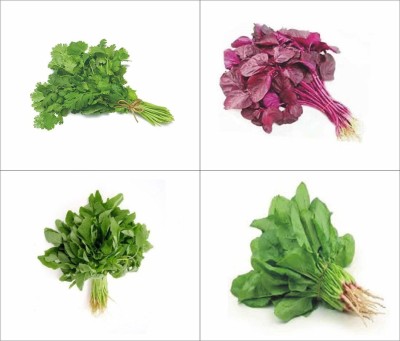VibeX Coriander Seed(900 per packet)
Quick Overview
Product Price Comparison
PLANTING INSTRUCTIONSGather the seeds and plant in late fall by spreading the seeds along the field.Amaranthus seeds can be directly seeded into your flower garden, or started indoors for transplanting later.Space seeds or seedlings 10-12" apart. They will tolerate a little crowding, and look good in clumps or groups.Amaranth is a warm season crop that requires full sun. Best germination occurs when soil temperatures are warm and grows well by planting in the same spot as leaf lettuce or radishes.GROWING REQUIREMENTSWATERINGWater the plant regularly, with small quantities of water every morning. Amaranth is fairly drought-tolerant.PESTSThe plants are vulnerable to Tarnished plant bug and Amaranth weevil. The pests swarm around the growing seed heads and suck the fluid out, they can stunt the seed production. The weevils are a 2-stage threat with the larvae chewing on the roots and the adults going after the leaves.SOILAmaranthus needs soil with a pH ranging between PH 4.2 to 9.1. It grows well in well- drained soil rich in Nitrogen and PhosperousSPOTAmaranthus prefers warm climate with six to eight hours of full sunTEMPERATUREAmaranth germinates best at soil temperatures around 25 degree celsius (72 degree F)HOW TO HARVESTTo determine if it is ready for harvest, keep a sheet of clean paper under the bent over seed head and shake gently. If you see tiny, shiny black seeds falling on the paper,the crop is ready for harvest.Once the seeds begin to readily fall from the tassels, take the seed heads in your hands and rub them over a bucket to catch the seed. This method of harvesting lessens the amount of debris and chaff that needs to be removed.Once you have harvested the amaranth, it needs to be completely dried before you store to avoid molding. Leave it on trays to dry in the sun before storing.


